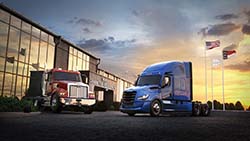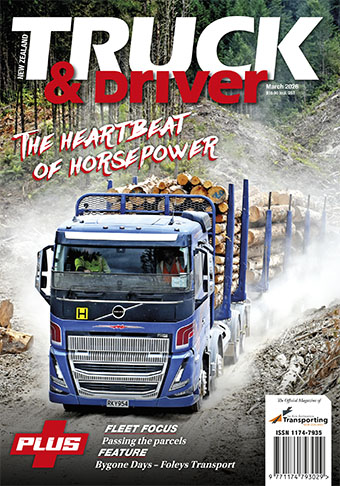
Daimler Truck Targets Over 12% Profitability by 2030
Posted: 10-Jul-2025 |
Daimler Truck Holding AG has unveiled its ambitious “Stronger 2030” strategy, aiming to significantly boost profitability and shareholder returns through a combination of European cost-cutting, targeted growth, and a pragmatic technology roadmap.
During its Capital Market Day 2025, the company announced upgraded financial targets, including an adjusted return on sales (adj. ROS) of more than 12% for its Industrial Business by 2030, alongside a new share buyback program of up to €2 billion.The comprehensive strategy is built on five pillars designed to enhance performance and resilience: unlocking potential through scale and efficiency, evolving into a customer-centric solutions provider, transforming technology at the "speed of right," building a lean operating model, and fostering a high-performance culture.
"We have the strategy in place, and we are establishing the performance culture to achieve this ambition," stated Karin Rådström, President & CEO of Daimler Truck. "When we do it right, it brings us to a profitability of more than 12% return on sales by 2030.”
A central component of the plan is the "Cost Down Europe" efficiency program, which targets over €1 billion in cost reductions by 2030. This restructuring for the Mercedes-Benz Trucks segment involves shifting some production to a "best-cost country" and a "significant job reduction" in Germany, which will be managed through attrition, early retirement, and severance packages.
The goal is to make the European operations more resilient and profitable after a period of lagging performance.In contrast, Daimler Truck North America (DTNA) continues to be a core profit driver, having already surpassed its 2025 financial goals with a 12.9% adjusted ROS in 2024.
DTNA's strategy focuses on sustaining its strong performance by expanding its vocational truck business and growing its high-margin service offerings to enhance resilience against market volatility.
The company also detailed a flexible and pragmatic technology strategy. Acknowledging a slower-than-anticipated adoption of zero-emission vehicles (ZEVs), particularly in North America, Daimler Truck is ramping down certain ZEV powertrain investments in the region to adapt to market realities.
Similarly, due to slow progress in refueling infrastructure, the large-scale production of hydrogen-powered trucks is being postponed to the early 2030s.The company will balance investments in diesel and zero-emission technologies, leveraging global platforms and partnerships like the Coretura software joint venture with Volvo Group to manage the transformation at the "speed of right."
Financially, the company is reaffirming its commitment to shareholders. The new €2 billion share buyback program is expected to launch in the second half of 2025.This complements its existing dividend policy of a 40-60% payout ratio of net profit, supported by a target to increase the Industrial Business's free cash flow by 50% by 2030 compared to 2024.



 + EQUIPMENT GUIDE - FREE
+ EQUIPMENT GUIDE - FREE
